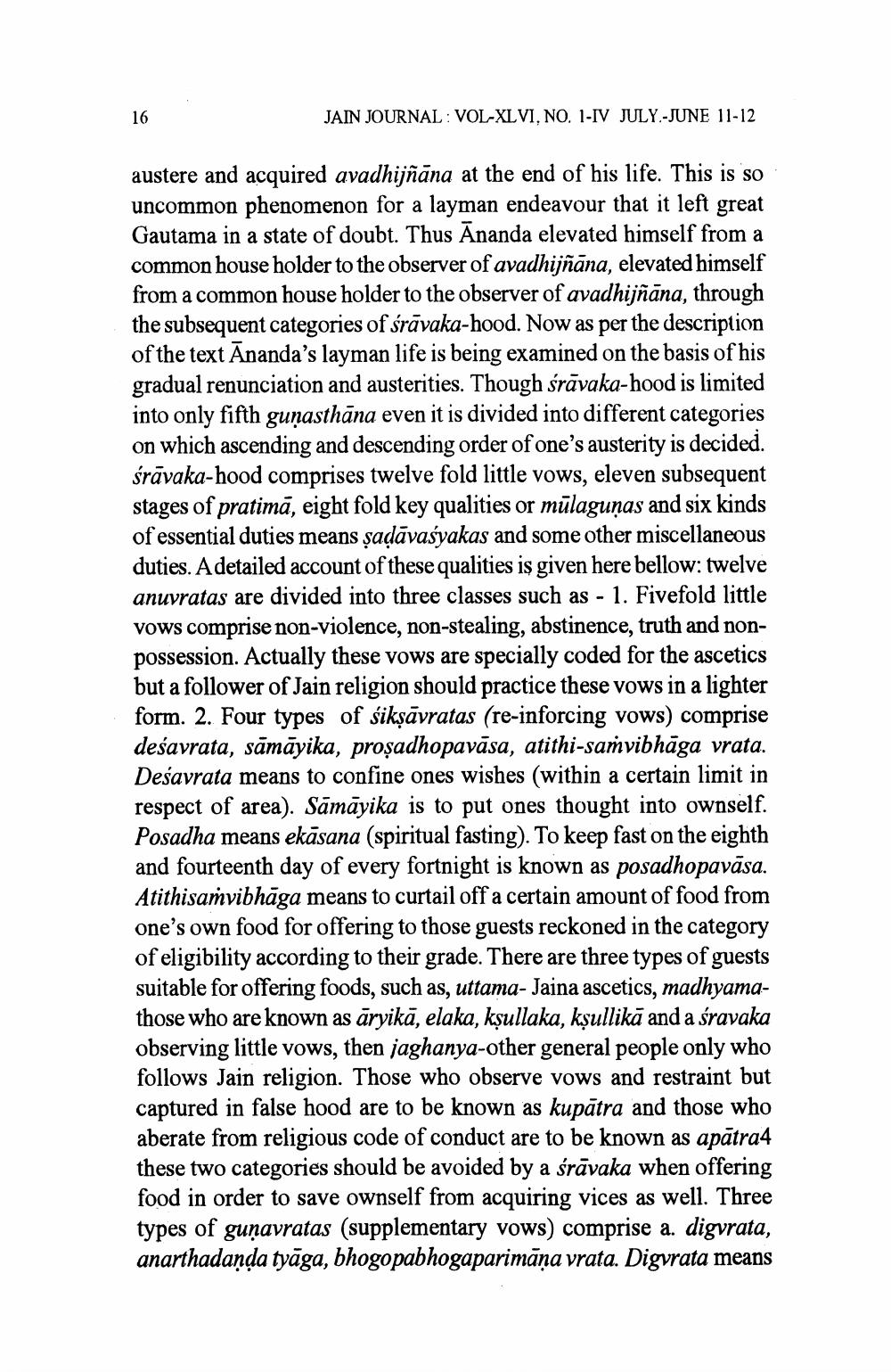________________
16
JAIN JOURNAL: VOL-XLVI, NO. 1-IV JULY-JUNE 11-12
austere and acquired avadhijñāna at the end of his life. This is so uncommon phenomenon for a layman endeavour that it left great Gautama in a state of doubt. Thus Ananda elevated himself from a common house holder to the observer of avadhijñāna, elevated himself from a common house holder to the observer of avadhijñāna, through the subsequent categories of śrāvaka-hood. Now as per the description of the text Ananda's layman life is being examined on the basis of his gradual renunciation and austerities. Though śrāvaka-hood is limited into only fifth gunasthāna even it is divided into different categories on which ascending and descending order of one's austerity is decided. śrāvaka-hood comprises twelve fold little vows, eleven subsequent stages of pratimā, eight fold key qualities or mūlagunas and six kinds of essential duties means şadāvasyakas and some other miscellaneous duties. A detailed account of these qualities is given here bellow: twelve anuvratas are divided into three classes such as - 1. Fivefold little vows comprise non-violence, non-stealing, abstinence, truth and nonpossession. Actually these vows are specially coded for the ascetics but a follower of Jain religion should practice these vows in a lighter form. 2. Four types of sikṣāvratas (re-inforcing vows) comprise deśavrata, sāmāyika, proșadhopavāsa, atithi-samvibhāga vrata. Dešavrata means to confine ones wishes (within a certain limit in respect of area). Sāmāyika is to put ones thought into ownself. Posadha means ekāsana (spiritual fasting). To keep fast on the eighth and fourteenth day of every fortnight is known as posadhopavāsa. Atithisaṁvibhāga means to curtail off a certain amount of food from one's own food for offering to those guests reckoned in the category of eligibility according to their grade. There are three types of guests suitable for offering foods, such as, uttama- Jaina ascetics, madhyamathose who are known as āryikā, elaka, kşullaka, kșullikā and a śravaka observing little vows, then jaghanya-other general people only who follows Jain religion. Those who observe vows and restraint but captured in false hood are to be known as kupātra and those who aberate from religious code of conduct are to be known as apātra4 these two categories should be avoided by a śrāvaka when offering food in order to save ownself from acquiring vices as well. Three types of guņavratas (supplementary vows) comprise a. digvrata, anarthadaņda tyāga, bhogopabhogaparimāņa vrata. Digvrata means




